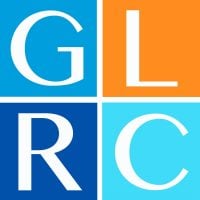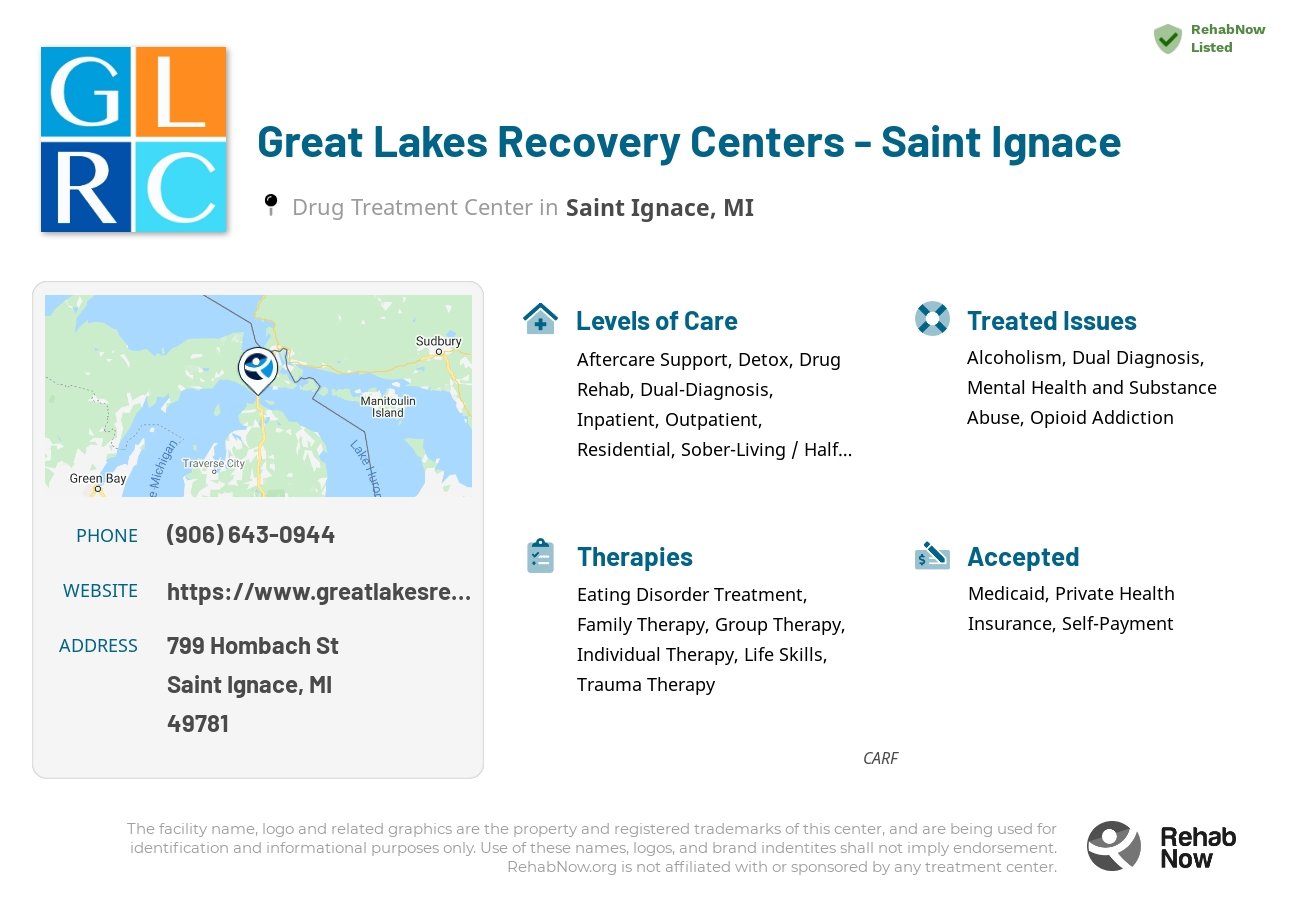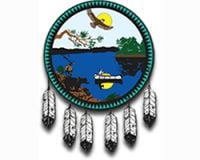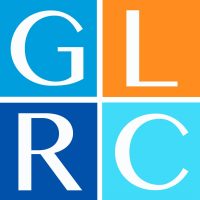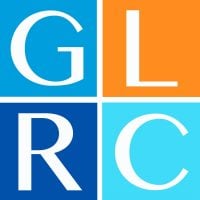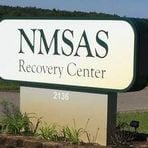Great Lakes Recovery Centers - Saint Ignace
Drug Rehab Center in Saint Ignace, Michigan
Great Lakes Recovery Centers in Saint Ignace, Michigan, offers comprehensive addiction treatment services, including detoxification, inpatient and outpatient care, group and individual therapy, relapse prevention, and aftercare support focused on trauma-informed care and an evidence-based approach to treatment.
About Great Lakes Recovery Centers - Saint Ignace in Michigan
Great Lakes Recovery Centers, located in Saint Ignace, Michigan, is a comprehensive addiction treatment facility that offers a full spectrum of care for those struggling with substance abuse and other co-occurring mental health issues. The center provides detoxification, inpatient and outpatient services, including group and individual therapy, relapse prevention, and comprehensive aftercare support. Their services are designed to equip individuals with the tools they need to sustain sobriety and continue building a life in recovery.
At Great Lakes Recovery Centers they understand the different needs of individuals and use an evidence-based approach to treatment, with a focus on trauma-informed care. They have an extensive team of professional addiction treatment staff who provide an array of services to help individuals rebuild their lives, including cognitive behavioral therapy, family therapy, 12-step programming, recreational activities, and a medication-assisted program for opioid and alcohol use disorder. Additionally, the staff provide crisis intervention and will refer and coordinate with relevant community resources to best serve each individual and their loved ones.
Great Lakes Recovery Centers - Saint Ignace is a Joint Commission accredited facility and provides nationally recognized services for those living with addiction. They are committed to providing quality care and creating a safe, healing environment for the individuals they serve. The team of highly trained professionals use a holistic approach, with the goal of providing personalized treatment that fits an individual's needs and teaches them how to live a life in recovery.
Genders
Ages
Modality
Additional
Accreditations

CARF
The Commission on Accreditation of Rehabilitation Facilities (CARF) is a non-profit organization that specifically accredits rehab organizations. Founded in 1966, CARF's, mission is to help service providers like rehab facilities maintain high standards of care.
Conditions and Issues Treated
Treatment for opioid addiction is best made with the help of medical professionals who are experienced in dealing with these types of drugs. This treatment can involve medications, exercise, behavioral therapy, and counseling sessions. It is important to note that the effectiveness of treatments for opioid addiction vary, so it is vital to research which treatment options are suitable for each individual.
Many people who struggle with opioid addiction need to attend specific programs like methadone , Suboxone or Vivitrol clinics.
These types of programs will provide the patient with legal, prescription medications that can help them overcome their cravings for illegal opioids like heroin or fentanyl . If the patient has a chronic condition like Hepatitis C, they must undergo treatment before they can begin taking these medications.
Individuals who are addicted to drugs and/or alcohol often have one or more co-occurring mental health disorders. Addressing both the addiction and the mental health problems at facilities like Great Lakes Recovery Centers - Saint Ignace can be very beneficial for these individuals.
Common mental health conditions that often co-occur with addiction include:
- Anxiety Disorders – People with drug and alcohol problems often suffer from anxiety disorders such as panic disorder, obsessive-compulsive disorder, social anxiety disorder, and generalized anxiety disorder.
- Depression – One of the most common mental illnesses co-occurring with addiction is major depressive disorder.
- Attention-deficit hyperactivity disorder (ADHD) – Many people with drug and alcohol problems also suffer from ADHD.
- Bipolar Disorder – People with bipolar disorder are more likely to suffer from drug and alcohol problems than the general population, and vice versa.
Levels of Care Offered
This center offers a variety of custom treatment tailored to individual recovery. Currently available are Aftercare Support, Detox, Drug Rehab, Dual-Diagnosis, Inpatient, Outpatient, Residential, Sober-Living / Half-Way, with additional therapies available as listed below.
Detox is the stage of recovery where the drugs or alcohol are entirely removed from your body. There are two different ways to detox, with medications and without. For many drugs and alcohol, the acute phase of detox can be completed in a number of days.
Inpatient recovery offers individual therapy, groups, and family therapy. The length of inpatient addiction treatment depends on the addict and their addiction. Inpatient rehab is a costly drug treatment, costing anywhere from $30k- to $60k. However, insurance often offers help in covering these costs.
Outpatient treatment can be considered the lowest intensity level of addiction treatment in Saint Ignace, MI. It is ideal for early phase addiction or lower intensity addictions. Great Lakes Recovery Centers - Saint Ignace peer group support, 12-step programs, and individual counseling are likely to be involved.
Sober living homes are transitional houses for recovering addicts who need more structure than they would receive in an aftercare program. Specific rules and regulations are enforced in these homes, which are beneficial for people who need a greater degree of structure than other types of treatment.
Sober living home options include:
- Live-in managers – might be beneficial to people who do not have a support system in place at home, or who experience high levels of stress between work and home life.
- House managers – House managers are beneficial for people who do not have a strong social network to rely on, or who are concerned about relapse in their daily lives.
- House parents – House parents are beneficial to people who reside in areas without a strong aftercare program for support.
Residential treatment programs are those that offer housing and meals in addition to substance abuse treatment. Rehab facilities that offer residential treatment allow patients to focus solely on recovery, in an environment totally separate from their lives. Some rehab centers specialize in short-term residential treatment (a few days to a week or two), while others solely provide treatment on a long-term basis (several weeks to months). Some offer both, and tailor treatment to the patient’s individual requirements.
Aftercare support is vital to those who have completed a drug or alcohol treatment program. This support comes in individual and family counseling, treatment of psychiatric and other medical conditions, and medications to reduce cravings. It helps recovering addicts adjust to normal day-to-day activities and can last for a year or longer.
The majority of drug and alcohol addicts who receive aftercare treatment do not relapse. It is estimated that without aftercare, the relapse rate will be between 70 to 90 percent for most people. Aftercare is the final stage in addiction recovery, but it will also help maintain sobriety if relapse does occur.
Therapies & Programs
Individual therapy is ideal for addicts who want to focus on themselves. It can also be helpful for those whose withdrawal symptoms are exacerbated by the presence of other people.
Benefits of individual therapy are:
- Access to a personalized treatment plan that focuses on the individual needs of the addict
- More privacy during treatment sessions
- Better personal development through introspection
- Increased self-awareness regarding addictive tendencies in order to avoid relapse
- Greater potential for a long-term recovery plan
- Receiving professional advice and detox assistance from medical staff
Family therapy can help you and your family deal with old issues that may trigger substance abuse. The idea behind family therapy for drug addiction is that you are never fully healed from substance abuse until you’ve healed your relationship with your family, too. To get sober, you need to find a different way to cope with the pain in your life.
This is when a group of people in various stages of recovery meet up and discuss their experiences, triggers, successes, failures, and even alternative therapies! Unlike support groups where everyone already knows each other, group therapy is conducted along side outpatient or inpatient treatment at Great Lakes Recovery Centers - Saint Ignace.
Trauma therapy is a clinical process that helps individuals deal with mental stress often caused by traumatic events. The therapist helps the person identify, understand and work through the problem. This is done with the help of talking about it in group or one-on-one counseling sessions.
Therapists use relaxation, role-playing, art, and music to help the person open up about what is bothering them. Some examples include:
- Talking about the traumatic event and how it affected them.
- Helping those who have PTSD to deal with their nightmares and recurring memories.
- Working with individuals to resolve the issues triggering the stress, whether seeing someone who reminds them of what happened or feeling helpless.
The individual is also encouraged to help others that are struggling with similar problems. This often helps them feel empowered and gives them hope.
Trauma therapy is not for everyone; it is usually reserved for people who have recently experienced a traumatic event and struggle to get over it. It is generally done for children, teenage victims of sexual assault, and war veterans.
Those struggling with addiction can benefit from learning certain life skills. It is not as simple as quitting drinking or taking drugs and thinking that the hard part is over. Being sober means living a whole new way of life. Many recovering addicts have found that they need to develop talents like time management, organization, communication skills, socialization skills, and self-esteem to make their life in sobriety work, Great Lakes Recovery Centers - Saint Ignace is here to help with that.
Payment Options Accepted
For specific insurance or payment methods please contact us.
Is your insurance accepted?
Ask an expert, call (888) 674-0062
Great Lakes Recovery Centers Associated Centers
Discover treatment facilities under the same provider.
- Great Lakes Recovery Centers - Adult Residential Services in Marquette, MI
- Great Lakes Recovery Centers - Mountain in Iron Mountain, MI
- Great Lakes Recovery Centers - Men's New Hope House in Sault Sainte Marie, MI
- Great Lakes Recovery Centers - Women's New Hope House in Sault Sainte Marie, MI
- Great Lakes Recovery Centers - Wright street in Marquette, MI
Learn More About Great Lakes Recovery Centers Centers
Additional Details
Specifics, location, and helpful extra information.
Saint Ignace, Michigan 49781 Phone Number(906) 643-0944 Meta DetailsUpdated November 25, 2023
Staff Verified
Great Lakes Recovery Centers - Saint Ignace Patient Reviews
There are no reviews yet. Be the first one to write one.
Saint Ignace, Michigan Addiction Information
Michigan has the second-highest rate of drug and alcohol abuse in the nation. Heroin is linked to more than 50% of the state's hepatitis C cases. Marijuana is the drug most often associated with crimes in Michigan, followed by methamphetamines. Opioids alone are responsible for almost 20% of all drug overdose deaths in Michigan.
The majority of those who abuse drugs in Saint Ignace is between the ages of 18 and 25. Drug overdose is now the leading cause of accidental death in Saint Ignace. Painkillers like Oxycontin and Vicodin are commonly abused, often leading to addiction. 61% of all admissions to treatment facilities are for alcohol abuse. Different types of treatment are available in Saint Ignace including inpatient treatment, outpatient treatment, and holistic treatment.
Treatment in Nearby Cities
- Coldwater, MI (271.4 mi.)
- Romulus, MI (259.9 mi.)
- Ontonagon, MI (230.5 mi.)
- West Branch, MI (111.9 mi.)
- Three Oaks, MI (296.3 mi.)
Centers near Great Lakes Recovery Centers - Saint Ignace
The facility name, logo and brand are the property and registered trademarks of Great Lakes Recovery Centers - Saint Ignace, and are being used for identification and informational purposes only. Use of these names, logos and brands shall not imply endorsement. RehabNow.org is not affiliated with or sponsored by Great Lakes Recovery Centers - Saint Ignace.
